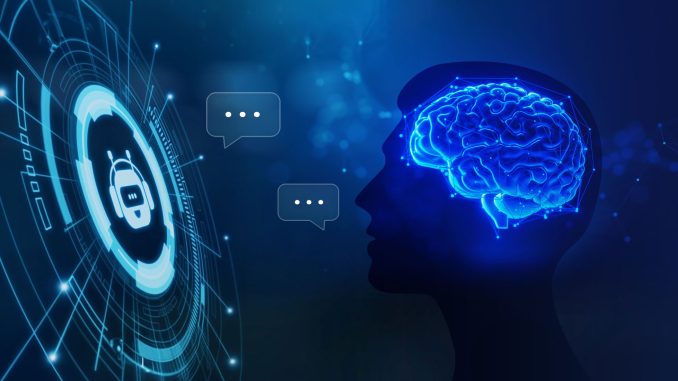
The latest AI breakthroughs and mental health treatment is on the cusp of a revolution. As the mental health crisis continues to worsen, new technologies offer more tools and better solutions for bridging care gaps. This well-rounded account gives you information on just how AI is reshaping treatment outcomes (in areas such as patient reach or the quality of contact) in contemporary medical practice. AI and Mental Health Today
Artificial Intelligence is finding evidence AI algorithms mine speech, text and facial expressions for trends that signal an emerging onset of depression (in the above figure), anxiety or other mental diseases. For instance: by analyzing if written words are aloft with depression or not.
Personalized treatment plans
Clinicians are using machine learning algorithms to customize treatments for individual patients. AI combines data from wearable devices (such as fitness bands and health monitors) and electronic health records along with feedback from patients to find the most effective way of providing treatment. This might be drug therapy plus cognitive-behavioral methods: it could use a formula drawn from Western medicine traditions mixed with Chinese herbal knowledge.
Wiati anvr(txTesrth)cesh ealiosumisn
AI-centred chatbots and virtual therapists such as Woebot and Wysa provide immediate support that is completely impartial. These devices lead people through exercises to improve their mental health — for example practicing mindfulness or reshaping cognitive. They make mental health support services more reachable, particularly for those who may fear therapy using traditional media.
Emergency Response
AI algorithms search through posts on social media, calls to help lines and other such sites around the Web where they single out individuals at risk of suicide or self-harm activities. This ensures that timeous assistance not unreachably far distant can be given in to rescue service people.
Monitoring and Preventing Relapses
AI-powered wearables and apps monitor one’s physical health status as well as daily behavior patterns: sleep schedule, pulse rate, work or rest habits etc. This information can be applied to forecast and prevent relapses in depression, post-traumatic stress disorder (PTSD) and similar directions. Articles You Might Like
Advantages of AI in Mental Health Care
Increased Accessibility
AI tools extend mental healthcare to remote areas and deprived sections of the community. With mobile phone apps offering constant access through interactive voice conversations, by 8:30 pm people’s lives who need help will be completely changed because they pull up a screen and get into an online conversation with someone else At least in rural settings or for people who do not have transportation to a mental health center, this can make all the difference.
Cost-Effective
AI takes away low-value routine work from mental health professionals, freeing them to deal with more difficult cases. As a result, healthcare systems can make substantial cost savings. Traditional Chinese Sansa Course
Spreading Social Change
Online locations help people get mental health care in private and anonymity; this reduces to at least some degree the stigma society attaches to receiving help for mental illness. The New Amharic Dictionary
Knowledge through Data
By making large-scale data analysis of mental health disorders possible, AI helps us to understand both how to treat them effectively and what strategies for prevention may work. Using AI in Mental Healthcare
Challenges and Ethical Considerations
Despite the potential of AI in mental health care, there are challenges and ethical issues.
Protection, Secrecy in Data and Its Security
Because of the sensitive nature of mental health information we need to make sure it is both safe against unauthorized disclosure and cannot be misused. Especially in this regard, the principles of transparent data management and compliance with regulations such as Europe’s GDPR are essential.
Bias: The Way Ahead
If AI models are trained on biased data sets, they will reinforce rather than mitigate inequality in mental health. That is why it is so vital to take extreme care over finding diverse and representative training data, in order that the results should follow strict egalitarian principles.
Human Interaction
AI may assist in mental health care, but it can never replace the empathy and warmth of its human therapists. We must strike a good balance between the two.
Licensing and Clinical Proof
When AI products are developed, they must undergo exhaustive testing for thoroughness and correctness prior to being approved.
Future Trends
The integration of such AI technologies means that Behavioral Healthcare DATE is likely to take an increasing brake. Future issues will deal with potential as high-tech themes–if AI can handle virtual life or not both integrated Designer style robots as well as VR concept furniture for mental health (VR). Some of the coming technologies are advanced facial expression recognition technique that treats human emotions without hurting the person being examined, or use of generative AI kindly as a gentle friend to develop complex scenarios for training mental health professionals.
Technologists, clinicians, and policymakers, all need to grasp the opportunity of AI and work out ethical as well as practical solutions for it. Thus AI can become an powerful ally in constructing a more open, effective mental health care system that serve everybody.
Conclusion
AI are likely to transform the treatment of psychological disorders–a task still awaiting significant advances unless such advances occur in the future. Meanwhile there remains a danger that the peasant for whom there exist no sophisticated medical facilities will simply ddie due to lack of treatment and communication Although it is dangerous to discard traditional Healing Methods without the careful application of technologies AI can indeed offer public health professionals as well individual patients an opportunity to try something new. We are currently living in the land of piness in the Fifth Civilization While the field is still nascent, AI has the potential to leave its mark on the worldwide mental health troubles and even this road, which is fundamentally cruel in one wallrolling pressu re across all waveswithout exception yet makes a healthier culture (of frozen peoplejoi maybe come to be remembered like ravenaqua——-lya century down by.Meanwhile everyone will move now into the development of an intelligent society.